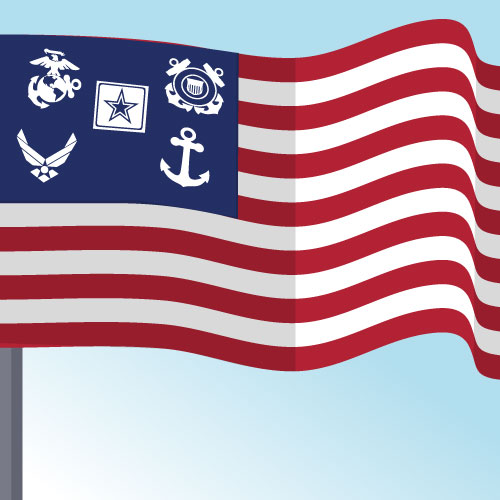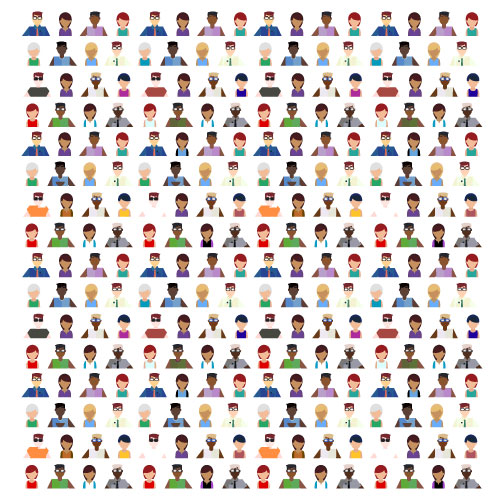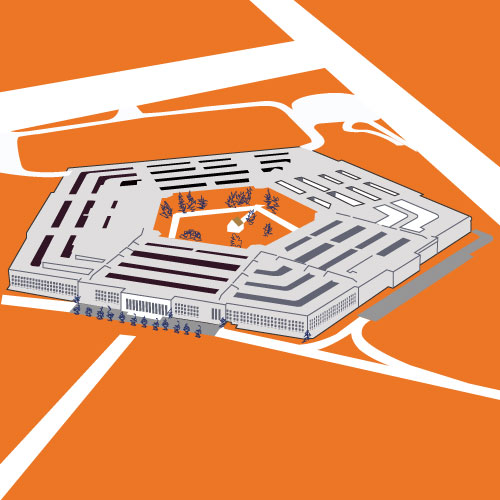How Did We Change?
Recapture the Spirit of Kindness
This article explores the courage and kindness found after the tragic events of 9/11. It share the story of a survivor who helped a colleague with cancer escape the tower, a cab driver who drove a survivor home, and a police officer who provided clean clothes and a hot shower.
To Learn More: dallasnews.com/opinion/commentary
Source: The Dallas Morning News
Currently in Afghanistan
In November 2019, U.S. President Donald Trump and Afghanistan President Ashraf Ghani met to discuss the Unites States’ withdrawal from Afghanistan.
To Learn More: cnn.com/2020
Source: nytimes.com
New Constitution
On January 26th, 2004, Afghanistan President, Hamid Karzai, signed a new constitution into law that outlines a new Islamic republic centered around tolerance and democracy.
To Learn More: afghanembassy.com.pl/afg/images
nbcnews.com/id/4064960/ns
Source: Ncsnews.com
Hamid Karzai Interim Leader
On December 22, 2001, Hamid Karzai was sworn in as the leader of the new government in Afghanistan. Karzai spoke out against terrorism and promisesd to promote peace within the country.
To Learn More: cnn.com/2001/WORLD/asiapcf
Source: Cnn.com, theglobeandmail.com
ISAF
On August 11, 2003, the NATO lead International Security Assistance Force (ISAF) began working with the Afghan National Security Forces, the Afghan National Army, and the Afghan National Police to help rebuild sustainable and independent security for the country.
To Learn More: nato.int/cps/en/natohq
Source: NATO
Bonn Agreement
On December 5, 2001, the Bonn Agreement was signed by 25 prominent Afghans to decide on a plan for the governing of the country. This agreement was the first of a series that intended to rebuild the Afghan government.
To Learn More: afghan-web.com/government
peacemaker.un.org/sites
afghanpulse.com/2019/03
Source: Afghanistan Online, United Nations Security Council, The Afghan Pulse
What Was the Cost of 9/11?
9/11 was an expensive day for the United States, not only because of the major cleanup required, but also because it closed businesses, limited airline flights, and caused many more financial issues. In this article, explore all the costs related to 9/11.
To Learn More: iags.org/costof911
Source: Institute for the Analysis of Global Security
Commitments to Afghanistan
America, dedicated to assisting the victims of the War on Terror, had a goal to build a safe, stable country while eliminating the ability for terrorism to ever take hold again. The U.S. plan focused on democracy, security, economy, education, health, agriculture, and gender roles.
To Learn More: georgewbush-whitehouse
Source: George W. Bush White House Archives
Rebuilding Schools
Rebuilding schools for children, especially girls, was a priority for the U.S. during the reconstruction in Afghanistan.
To Learn More: iowapbs.org/iowapathways/artifact
rescue.org/article/building
pri.org/stories/2015-07-20
Source: Iowa PBS, Rescue.org
Rebuilding a Nation
Since 2001, the U.S. has spent nearly a trillion dollars in Afghanistan. Although roughly $140 billion dollars has gone to Afghan relief and reconstruction, the majority of this money has gone toward the War on Terror.
To Learn More: usnews.com/news/business
youtube.com/watch
statista.com/chart/20932
Source: US News, YouTube
TSA Timeline
The Transportation Security Administration (TSA) was created in response to 9/11. Learn about what they’ve been doing to keep us safe in the time since they were established.
To Learn More: tsa.gov/timeline
Source: TSA
9/11 and Airport Security
Learn all the ways that 9/11 changed airport security and why flying continues to be one of the safest ways to travel.
To Learn More: cheatsheet.com/culture
Source: Showbiz CheatSheet
Ways We’ve Changed Since
The world has changed in many ways since 9/11. Explore how life in Afghanistan, oil prices, violence against Muslims, air travel, related illnesses, and the global economy has changed in the decades since.
To Learn More: pbs.org/newshour
Source: PBS
Firefighters and Police Change
After 9/11, fire departments and police stations took the opportunity to learn how they could better respond to terrorist attacks. Now, they have a much better understanding of what the risks could be.
To Learn More: marketwatch.com/story/after-911
Source: Marketwatch
9/11 Impacts Language
This article explores how referring to the attacks of September 11th as “9/11” created a lasting impact on the English language, and why the terminology is unique.
To Learn More: businessinsider.com/how-9-11
Source: Business Insider
US-Afghan Agreement
On September 30, 2014, Afghanistan and the U.S. signed the Bilateral Security Agreement, showing the countries’ commitment to working together and strengthening a long-term relationship. The agreement determined how many US troops could stay in Afghanistan, and for how long.
To Learn More: staging.afghanembassy.us/contents
Bilateral Security Agreement explained: rferl.org/explainer-bsa
Source: Afghan Embassy
Immigration Law and DACA
In this video, Tereza Lee, an immigrant rights activist, talks about how the terrorist attacks on 9/11 drastically changed immigration policy in America and how the effects are being felt even to this day.
To Learn More: youtube.com/watch
Source: YouTube
NATO Article 5
Less than 24 hours after 9/11, NATO invoked Article 5 for the first time in its history, showing support for the United States. Article 5 states that if one NATO ally is the victim of an armed attack, it will be considered an act of violence against all of NATO.
To Learn More: nato.int/docu/review/2006
To Learn More: nato.int/cps/en/natohq
Source: NATO int
Fire Response Changed
The events of 9/11 changed how fire departments respond to emergencies, increasing communication and expanding funds to better respond to disasters.
To Learn More: koaa.com/news/2018/09/11
Source: KOAA/NBC
Learning From Crisis
Despite its tragedy, many lessons were learned from the events of 9/11, like new methods for responding to other natural and manmade crises.
To Learn More: /theconversation.com/command-under-attack
Source: The Conversation
The Patriot Act
The Patriot Act was created to improve U.S. law enforcement’s ability to combat threats of terrorism. Passed in 2001, it received bipartisan support in Congress and was signed into law by President George Bush.
To Learn More: history.com/topics/21st-century/patriot-act
Source: History.com
Homeland Security Act of 2002
In response to the events of 9/11, the Homeland Security Act of 2002 was established by the Department of Homeland Security to prevent further attacks within the United States, reduce our vulnerability to terrorism, and assist in recovery.
To Learn More: britannica.com/topic/Homeland-Security-Act
Source: Britannica
The Creation of the TSA
The Transportation Security Administration (TSA) was created in response to the terrorist attacks on 9/11 and now provides strict security measures in airports all across the country to keep people safe.
To Learn More: cntraveler.com/story/how-airport-security
Source: Condé Nast Traveler
People of Afghanistan
This video explores the people of Afghanistan’s response to the 9/11 terrorist attacks, as well as how they felt about the U.S. military presence in their country. It shows that many people in Afghanistan openly condemned the actions of al-Qaeda.
To Learn More: youtube.com/watch?
Source: PBS NewsHour
9/11 Teaching
Educating children about the events of 9/11 proved to be very challenging in weeks, months, and even years after the attacks, but it still remained an important goal for teachers everywhere. To help teachers, PBS provides provided articles, videos, and lesson plans that instructors could share with their students.
To Learn More: pbs.org/911-anniversary
Source: PBS NewsHour
Entertainment Effects
The September 11th attacks had a significant impact on the world, especially the entertainment industry. Shortly after the attacks, the United States and several other countries postponed, edited, or even cancelled television shows and movies that portrayed terrorism, plane crashes, bombs, or any other imagery related to the 9/11 attacks.
Edited Films
Films released in the months directly after 9/11 were often edited to remove any references to the tragic events. Most famously, the teaser trailer and promotional poster for Spider-Man was altered so that the Twin Towers could no longer be seen in the background.
Delayed films
In the wake of national tragedy, many movies were delayed so that they would not come out during the time of crisis. The release of Collateral Damage, starring Arnold Schwarzenegger, was delayed by four months because the movie featured a terrorist bombing.
Cancelled films
Due to the nation’s sensitivity after 9/11, some filmmakers decided it was best to cancel their productions altogether instead of risking the release of something with possibly offensive themes. James Cameron proved to be among this crowd when he cancelled his sequel to the 1990’s action hit True Lies.
Non-altered films
Some films released after 9/11, including Vanilla Sky from director Cameron Crowe, decided to keep the scenes featuring the World Trade Center instead of removing them. These decisions were often met with criticism from the public.
Other changes
Many movies were altered simply because there was a chance that a theme or image might remind people of 9/11, even if the movie had no direct links to the event. The film Spy Game, for example, reduced the size of a tower of smoke because the studio thought it looked too similar to shots of the World Trade Center after the terrorist attacks.
With the World Trade Center added
Many filmmakers have used computer-generated imagery (CGI) to add the World Trade Center into films and television series that were set before 9/11. The 2005 film Munich, for example, which takes place in 1977, has a scene with the Twin Towers in the background.
To Learn More: https://en.wikipedia.org/wiki/List_of_entertainment_affected_by_the_September_11_attacks
Source: Wikipedia
Search 9/11 Lessons
Museum Galleries
Museum Lessons

Military Response
Learn about the military response to 9/11 and the difficulty of regime change.

New York City, NY
Learn about 9/11 in NYC and create your own I HEART NY design to honor the city.









